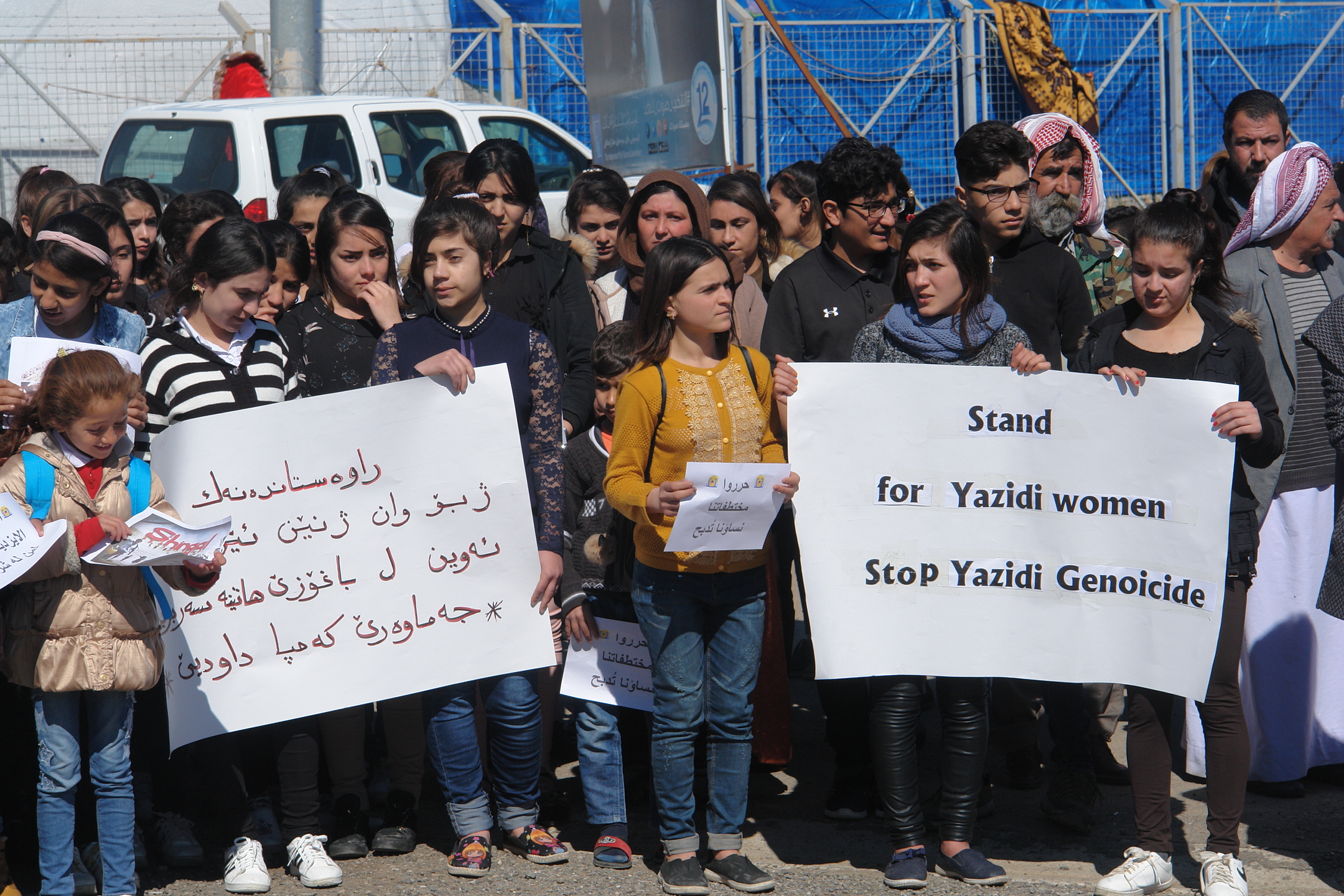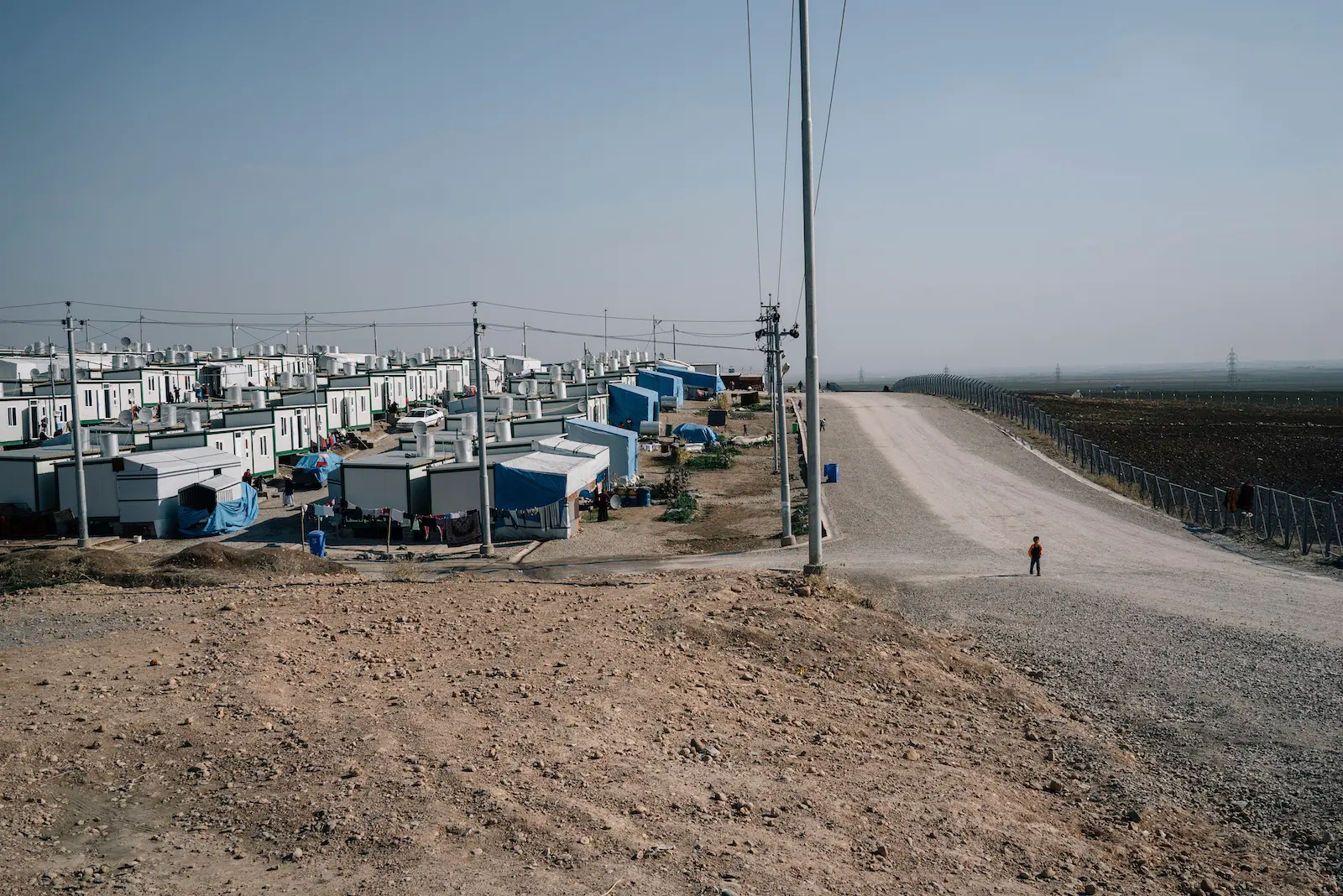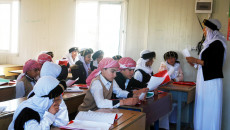Human Rights Watch HRW announced that the Iraqi authorities have failed to pay the financial compensation due to thousands of victims, mainly Ezidis (Yazidis), survived atrocities of the extremist militants of the Islamic State in Iraq and Syria ISIS despite a special law endorsed by the Iraqi parliament.
A report by HRW, published on May 9, (Iraq: Compensations for ISIS Victims Too Little, Too Late) though “reparations are key for returning thousands of displaced Yazidis and others.”
A large part of the Human Rights Watch report touched on the Yazidi Survivors Law, which was approved by the Iraqi parliament on March 1, 2021, and relates to financial and moral compensation for women who were kidnapped by IS and subjected to all kinds of violence, with the aim of providing them with a decent life and reintegrating them into society.
“Without compensation, many Sinjaris lack the financial means to rebuild their homes and businesses, so returning home is simply not an option,” said Sarah Sanbar, Iraq researcher at Human Rights Watch.
“Iraqi authorities should distribute funds already earmarked for compensation to help people go home and rebuild their lives.”
Sinjar has two administrations and more than eight security forces and armed groups, while the devastation of the war still remains, and thousands of families from the district live under tents in for the Internally Displaced People IDPs for absence of security, public services and reconstruction.
The extremist militants of the Islamic State of Iraq and Syria ISIS took over the district of Sinjar in August 2014, killing more than 1,293 Yazidis and kidnapping 6,417 members of the religious community. According to the Kurdistan Regional Government KRG, 2,693 of the abductees are still missing.
" Those who have returned face an unstable security situation and inadequate or nonexistent public services, including education, healthcare, water, and electricity," the Human Rights Watch report said.
The United States US Assistant Secretary of State for the Bureau of Near Eastern Affairs, Barbara Leaf, stressed in a press conference early May in Erbil the Yazidi and Christian communities in Iraq do not feel safe to return to their homes.
The report indicated that despite the destruction and damage caused to the Yazidis as a result of the ISIS war, a very small percentage of the Yazidis received compensation under the Yazidi Survivors Law.
In February of this year, 420 Yazidi survivors received salaries from the federal government for the first time, two years after the law was passed.
The organization adopted a previous report published by (Kirkuk Now) website in February 2023 on the law as one of the sources for its report. So far, 10,500 people from Sinjar have applied for compensation, of which 5,000 have been approved, according to HRW.
Shingal, located 120 km west of Mosul, center of Nineveh province, used to be home to over 100,000 adherents Ezidi ethno-religious minority and one of the disputed territories between Baghdad and Erbil. Ezidis also live in Shekhan, Bashiqa and other areas of Duhok Northern Province.

Displaced Yazidis in Al-Dawdi camp, demanding the rescue of the kidnapped, Dohuk, 2019. KirkukNow
As stated in the report, some of the interviewees said that the compensation procedures under the Yazidi Survivors Law and Law No. 20 are complex, lengthy and costly, and in some cases entirely inaccessible. The process under Law No. 20 in Sinjar, as in other areas of Iraq, has been plagued by procedural and processing inefficiencies and budgetary issues.
People interviewed reported spending up to two years and from 300,000 Iraqi Dinars (IQD) to up to 1 million IQD (US$205 to US$762) on legal and administrative fees, and transportation to complete the procedures. Often, they said, the amounts of compensation that the Sinjar Compensation Committee recommended are substantially lower than the value of the destroyed home or business or the cost to fully rebuild.
Compensation procedures under the Yazidi Survivors Law and Law No. 20 are complex, lengthy and costly
According to the Yazidi Women Survivors Law, the survivor and those covered by the provisions of this law shall be paid a monthly salary of no less than double the minimum pension – the lowest pension in Iraq is 500 thousand dinars – meaning that each covered person will receive a monthly salary of one million dinars.
The law includes not only Yazidis, but also women and girls from the Turkmen, Christian and Shabak components, who were kidnapped by ISIS militants or who survived the killing campaigns they carried out.
It also includes children of both sexes under the age of 18.
“The first group of 420 Yazidi women received financial compensation under the Yazidi Survivors Law in February 2023. While this is a positive and necessary step toward addressing the abuses committed against the Yazidi community and other ethnic minorities, which amount to crimes against humanity, it only provides for the needs of a small fraction of the Sinjaris entitled to compensation,” Human Rights Watch said.
Those not covered by the Yazidi Survivors Law are entitled to apply for compensation under Law No. 20 of 2009, which has a broader remit and entitles Iraqis to make compensation claims for damages “as a result of war operations, military mistakes, and terrorist operations.” The law provides for compensation to all civilian victims of war or their family members in cases of “death, enforced disappearance, disability, injuries, damaged property and/or disadvantage related to job or education.” Compensation for property damage extends to damaged vehicles, houses, farmland, furniture, shops, and companies.
Majid Shingali, a member of parliament from Sinjar, told Human Rights Watch that compensation claims have not been paid in Sinjar because of federal budgetary issues since 2021. Iraq did not pass a federal budget in 2022 due to its inability to form a government following the October 2021 elections. A draft budget covering 2023 – 2025 was approved by the Iraqi council of ministers in March 2023.
“The Iraqi government should address the delays in the compensation process that impede the timely disbursement of funds to the claimants, and ensure adequate funding for Law No. 20. In addition, and to remove other barriers to the return of the Sinjarians,” the Human Rights Watch report added, “the The Iraqi authorities will provide funds to develop physical infrastructure and provide public services in Sinjar, including education, health care, water, electricity, and others.”
In March 2021, the Iraqi parliament ratified a law for reparation of Ezidi, Tukrmen, Christian and Shabak women survivors of ISIS.
The Ezidi Women Survivors' Law referred to the Iraqi parliament by the Iraqi President Barham Salih in March 2019, provides support and rehabilitation for the community, particularly the female members who escaped Islamic State abduction and slavery.
The law provides financial compensation for female and male survivors while it has not addressed other more sensitive issues, such as dealing with children who were the results of IS sexual abuse.
The law has outlined an office to be managed by an Ezidi to undertake the mission of receiving documents from the victims for the purpose of their compensation and providing a prosperous life.






